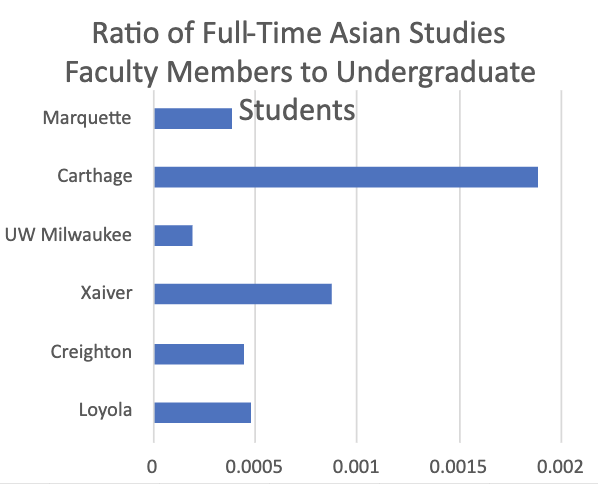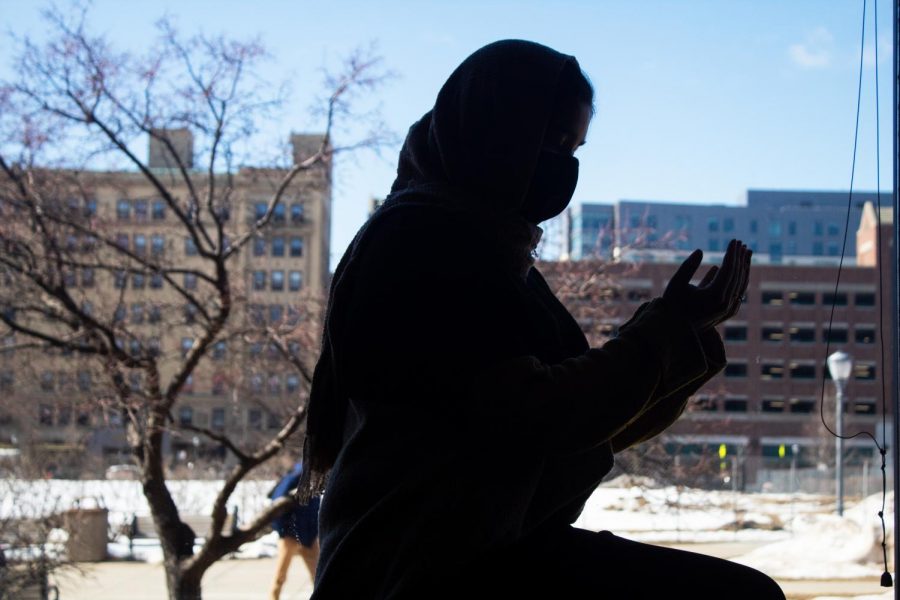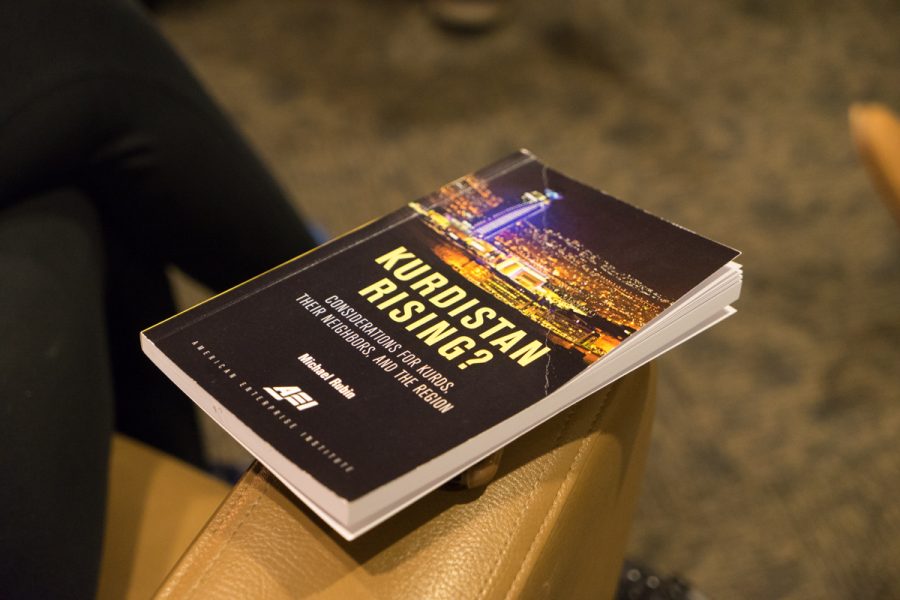Last month, President Obama was faced with a slimy situation. The Dalai Lama was to visit the White House, and China frowned upon it.
China urged the United States to cancel the meeting between the leader of the free world and the leader of a non-free region of the world, Tibet, threatening damage to Sino-U.S. relations.
This got me thinking about how the mighty have almost fallen. Turn the wheels of time two decades ago, and who’d have thought China would have the audacity to threaten sanctions against the world’s superpower?
That’s what an outrageous budget deficit and an economy meltdown can do — put you at the mercy of a developing country.
China currently holds close to $800 billion of federal U.S debts and is a major player in crucial negotiations with North Korea and Iran.
You want a sketchy picture of what a post-American dominated world looks like, here you go: China dictates and America follows.
As to whether the current state of affairs is the best (an American-dominated world), I can’t give a definitive answer, but I do know that a world totally or slightly dominated by China isn’t the Promised Land.
Anyway, Obama did the right thing by meeting with the Dalai Lama, and his bad-boy defiance was not born out of egoism or hot-headedness but careful rationalization.
There was a reason the meeting was low key, and a well thought out reason at that. The president offered sympathy and words of hope to the Tibetan leader rather than promises of action.
The babble behind the news of Obama’s insolence made for good sound bites, but that’s all.
Americans are down on their luck because of the economy and because they realize the U.S. doesn’t hold as much power over China as it used to — adding salt to injury. Try it, it hurts.
Obama kept the rhetoric sweet and vague, saying he was supportive and sympathetic to the people of Tibet, but didn’t dare mention any practical assistance.
In fact, the White House took it a step further by reassuring the People’s Republic of China that the U.S. acknowledges Tibet as an integral part of its territory. That wasn’t so defiant in nature.
This is the reality behind the political theater: the Obama administration realizes China has them pinned. But in an attempt to seem stronger and not step on China’s golden toes, they are being extremely cautious.
If the Obama administration was seeking to be truly audacious, this is how the script would have played out: Obama would have broadcast the meeting with the Dalai Lama and prepared a lavish state dinner.
Then he would make promises to the Tibetan people about helping them gain freedom from the China.
And as a final spate, he would prepare sanctions against China because of alleged human rights violations. Now that would be bold. But he didn’t.
Given the current fix the U.S. is in and the state of international affairs, that would have been stupidity on America’s part.
Obama opted for a diplomatic step that incorporated both the reality of tense relations with China and America’s need to be or seem in control.
Once again, Obama has proved how to navigate the treacherous seas of foreign relations all too well.
Food For Thought: Life’s battle is not a battle of muscles or egos but rather of heart and wisdom, where only the rational and diplomatic survive.







Chevy Fang • Mar 3, 2010 at 10:02 pm
(The logic behind this article is, to make informal formal, make formal nerd, and make nerd hilarious.)
I am not in the major of journalism and probably I will never consider this option, though the rationality and objectivity embodied in the journalist spirit is always respectful. However, the absolute rationality and objectivity, similar as absolute vacuum, is rarely seen in the daily life (or I can say non-existent in a more scientific manner). This proposition could be expanded to all kinds of article writings. Ironically, the abundance of relevant literatures even deteriorates this sophistication: two opposite ideas can be simultaneously proven right depending on opposing supportive materials. Thus, the question arises: how could we guarantee the objectivity and rationality in our writings?
Croce asserts: all history is contemporary, and he has become plasters and cements for centuries. The logic behind this quotation is, in order to conform to the contemporary taste, no matter consciously or unconsciously, we have to construct a comparatively contemporary foundation in order to diminish misleading concepts and definitions.
Return to the case of Tibet and Dalai Lama 14th.
First, it could be a historic problem: The land used to belong to you will belong to you forever. That DOES sound like a slogan in knight novels or magic movies. From that perspective, I bet Emil has never heard the song Viva La Vida. Ian’s perspective is also controversial: does an inferior social structure and ideology need to be conquered, or “improved” by an external advanced civilization? The exploitation of the West in the American history is built on the tear and blood of Native Americans, and should we call that the improvement of human right? Or let’s analyze Dalai Lama’s problem from a pure HISTORIC perspective. Please remember, he has left or been exiled (I really have no idea which word is more appropriate here, since history is always a fog for me) Tibet for more than 30 years and he has never been back. Is he still qualified to lead the Tibet?? In conclusion, the historic perspective is not solid enough to either support Dalai Lama or oppose to, since there is only one version of history, the winner’s. Even we can’t deny or totally deny the possibility that Tibetan people may cheer for Chinese government’s dominance in 20 years.
Finally, I have to point out, Emil lacks the basic rationality in your writings. As I noticed, a solid proposition is based on several universally-accepted concepts and definitions. And I start to seriously doubt where Emil obtains his concepts and definitions. Emil, you call Dalai Lama “the leader of a non-free region of the world”. First, Dalai Lama is used as a lineage of religious officials of the Gelug sect of Tibetan Buddhism. Or maybe you refer to the 14th Dalai Lama, and he is the head of the government-in-exile based in Dharamshala, India, or the leader of Exiled-Tibet Government.He has left Tibet for years. And this sentence, “You want a sketchy picture of what a post-American dominated world looks like, here you go: China dictates and America follows.” Oh My God……your subjective style makes you more like a prophet. Please, excuse me again, give me any evidence that validates your statement. Or better I will treat your article as an essay in your dairy. It’s still a widely controversial question in both politics and economics that what role China will play in future. And Ian, I can validate some of your historic evidence about Tibet. But my question is: where did you get them? I have been to Tibet three times. I talked to the local Tibetan, both the old and the young. That gives me the confidence and qualification to debate this question. So if I were you guys, I will visit Tibet at first rather than sitting in the library, exploring the websites and posting your propositions.
I grew up in China but I refuse to become a communist (I am very proud of that). And I don’t like Chinese government at all. But when I talked to the local Tibetan, I noticed they are happy, they are satisfied with their current lives and they feel remarkable improvements since 1950. If anyone has the right to determine the destination of Tibet, it should be them, not you, me, Chinese Government, the United States or Dalai Lama 14th. If they are satisfied with China’s governance, why should we INTERFERE their choices? But, the question still exists, whether they are satisfied with Chinese government? Or how could we know if they are satisfied with Chinese government without any intervention from the Chinese government? From a realistic perspective, I don’t think the right answer is the interference from the US government.
Ian Stewart • Mar 3, 2010 at 4:57 pm
Or maybe Obama doesn’t buy into the romanticized account of Tibetan history so many in the West have come to accept. I know it is blasphemy among young liberals to even question the right of Tibet to self-rule, akin to opposing fair trade policies that end up impoverishing millions, but this is based on a fairy-tale reinvention of what Tibet was actually like prior to Chinese occupation. I imagine the vast majority of hippies with their Free Tibet bumper stickers would be surprised to find out that prior to Chinese occupation Tibet had more in common with Afghanistan under Taliban rule than the harmonious society they envision. It’s heartwarming to imagine a peaceful society of Buddhists meditating and living together in peace, but history tells a different tale.
Under the despotic theocracy that controlled Tibet for centuries prior to 1951, Tibet was essentially a theocratic, feudal serfdom. Slavery was commonplace. Homosexuals were subject to execution. Torture was commonplace; some favorite methods included the gouging of eyes, amputation, the removal of tongues, and genital mutilation. Torture instruments designed for use specifically on small children have since been recovered. Peasant children were frequently taken from their families to serve in the monasteries where they were often victims of sexually abuse.
Furthermore, the religious authority of the Dalai Lama to rule Tibet is based only on one interpretation of the Buddhist religion. Before the first Dalai Lama there were numerous lamas and readings of the faith. In an effort to consolidate political power, however, these alternative views were forbidden.
Considering all this it makes sense that the rebellion against Chinese rule was led not by the masses but by the elites who had an interest in a return to power, along with backing from the CIA.
I’m not denying the human rights abuses perpetrated against Tibetans under Chinese rule, nor am I suggesting that Obama shouldn’t encourage the Chinese to improve on this issue. I’m just encouraging people to rethink their stereotypes about what Tibet would be like without China.
Most importantly, like it or not, China is never going to relinquish control over Tibet. Not in the foreseeable future at least. So for Obama to get into a pissing match with the Chinese over a non-starter at a time when we need their cooperation on economic and foreign policy issues would be futile at best, but more likely harmful to our own interests.
Let’s face it, Obama was holding a PR event for the fair-trade preaching, Civic-driving, Whole Foods-shopping wing of the Democratic Party.
(Confession: I sometimes drive a hybrid and shop at Whole Foods).